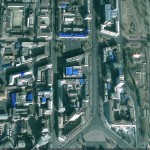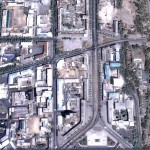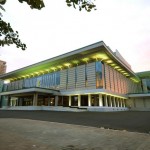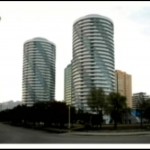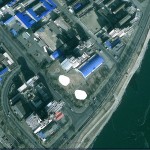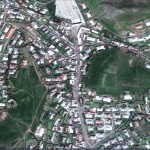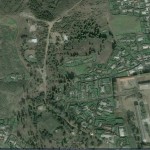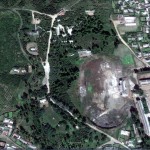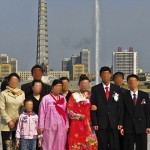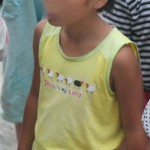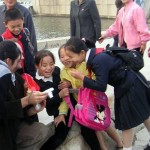FT: You think the economy in North Korea is starving. That is right! Nevertheless, it attracts entrepreneurs there like Eloesser Volker from Germany. He tells Anna Lu the story of his life in the land of Kim Jong-il.
North Korea is one of the most isolated and inaccessible countries in the world. Nevertheless, there are millions of university trained Koreans and entrepreneurs living in the country. Volker Eloesser is one of the entrepreneurs. Eloesser runs a company in Pyongyang. The IT company is known as Nosotek and is a joint venture with the North Korean state. It is not very simple to talk to Eloesser about his life and work in North Korea. The lines are too unstable to North Korea, with numerous eavesdroppers. Not everything can be talked about openly. The following article is the outcome of countless emails between Pyongyang and Hamburg.
VE: “Why do we work in North Korea? There are signs that the country can develop into a booming region. Recently, a short report about the iPad was broadcast. Videos from South Korea are widely circulated amongst students. The policy change may not be imminent, but it is unstoppable. Once that happens, property prices will increase.
This is the strategy of most foreign companies here: Real estate speculation, even if the permits for foreigners are only granted in a joint venture status. Many of the companies produce products as a matter of form and do not make any significant profits. Other opportunities include buying up restaurants, shop buildings and swimming pools. Just imagine if someone would have built a restaurant in China in 1985 in Tiananmen Square. Or at Alexander Platz in East Berlin. Opportunities like these do not happen often in the world.
FT: Volker Eloesser operates an IT company in Pyongyang, North Korea and hopes the country develops into a booming region.
VE: Naturally, we only invest very little into production. Nosotek develops software and apps for the iPhone. We are quite successful. One time, we were even in the top ten in the App Store. Our customers do not want us to mention the name of our company or our employees’ names on the product. Although it is going well, we do not generate profits yet. Our headquarters is located in one of the most sought after residential areas in Pyongyang, not far from the center. The area boasts multi-story, stucco houses and easy metro access. These are some of the best conditions possible, so we are optimistic.
Unfortunately, many things are expensive here. The bulk of the goods are imported and therefore, cost twice as much as they would in China. Power, logistics and communications are almost prohibitive. However, wages are way below Chinese standards, which is a key benefit if you get good people. There are plenty here, all with a university degree in computer science or mathematics, some have doctorates. They seem to wait for an announcement of a job opening. I only have to ask my Korean partner and 14 days later new people are coming in for a trial. I can say nothing about the wages.
FT: In fact, the average salary in Pyongyang is around 3,000 Won a month. After a devastating currency reform and crop failures in recent years, this affords an employee about three kilos of rice. Eloesser does not say it, but we hear such things from aid workers in the region. The aid workers do not wish to be identified. Eloesser further:
Eating together in the common area.
VE: “In total we have 45 Korean employees, including five women. I, am the only European. We all eat in the company common area every single day. I particularly like the octopus salad and will miss it if I relocate. After work, colleagues remain a little longer and often sing songs to the guitar. The atmosphere is friendly. Nevertheless, it is not always easy. Koreans are very proud people who love their country and their culture and know nothing else.
It is not easy to convince them to do something differently. For many it is difficult to recognize a foreigner as an authority, and if they do not understand the meaning of a statement it is often not performed. However, the biggest difficulty is much different: We have an IT company without access to the internet. We solve this problem by delegating the development of online components to partner companies in China. Here in North Korea you can only do things offline. At home I have true internet access, but it is very slow and rather expensive.”
FT: In fact, one can only get on the internet via a satellite dish in North Korea. The acquisition cost to use the internet according to a local charity is the equivalent of 11,000 euros. The monthly expense may be up to 700 euros, depending on how many users share the connection.
VE: “Pyongyang itself has changed in the last few years. Since 2005, the first time I was here, the traffic has doubled. The days of empty roads are long gone, such images only haunt the internet. Instead of old taxis or Ladas, North Korean Pyonghwas and Malaysian Proton sedans are on the road now. Bicycles are hardly center. They may only drive on the sidewalks. There are lots of military jeeps or SUVs from Russian, Chinese and local manufacturers.
You meet uniformed people everywhere in North Korea, but not all are military. Civilians bear just as many olive green suits with no weapons or rank insignias. The rest are soldiers. Soldiers are often used to harvest and help with road and house construction. I never feel threatened by the military presence as a foreigner. I feel I am treated with respect. People think; if he was not important for our country, he would not be here. Nevertheless, I am of course aware that somebody writes reports about me. Wherever I go, if I am at a restaurant or at work, somebody knows me. He notes when and where I parked my car and statements like this interview will be read by the authorities. At first I thought they listened to me at my apartment. However, even if they have actually done this, I think it has become boring for them.
Sometimes I can understand their suspicions; the reports by many Western media outlets are biased. Recently, the North Korean government printed a picture of children splashing around in Wonsan. People abroad believed the picture was staged, but this type of activity is common in the summertime heat.
FT: Sense of unwritten prohibitions
VE: The authorities are particularly suspicious of journalists and tourists because they do not know their true intentions. We are entrepreneurs and largely left alone. We are not required to go to political events or memorials. As a business man you have one clear goal, business. It is understood and supported. Life would be easier if we knew what we can and cannot do. Unfortunately, this is not written anywhere. It is better to hold back. Over time, you develop a sense of unwritten prohibitions. I have my own opinion about the policy, but I will keep it to myself. I make sure I never have a camera with me, not even on my phone. I do this so no one thinks I want to photograph something without permission. I live in the Bulgarian Embassy because there are no mixed residences. I never visit North Koreans at home and do not talk to them on the street. I do talk to children occasionally. They are not afraid of foreigners and like to try out their English vocabulary. They will say things like; “How old are you?” Where do you come from? Bye-bye.” Then they run away giggling.
Basically, I lead a fairly normal life here. I can move around in my free time and go to the mountains and play golf or tennis. There is a night life in Pyongyang with bars and karaoke. More precisely, there are two types of night life, one for locals and one for foreigners. For example, I do not get tickets to the local cinema. Today I went to an amusement park that many North Koreans visit. The park was built in 2010 and is equipped with fair attractions like the kind they have once a year in small German towns.
Shopping is not a problem. There are no signs of a food shortage as the shops are packed. Curiously, a kilo of chicken on the market is often cheaper than a kilo of vegetables. This may be because chickens can live in backyards and on balconies. Vegetables cannot, that would require offseason greenhouses, which are not found in North Korea. Imported goods usually have astronomical prices. For example; a Hungarian salami costs the equivalent of 42 euros. Other products like yogurt cannot be found in the summer because the refrigeration is inadequate. Sometimes I shop at the diplomatic supermarket and buy things like Haribo, Mosel wine and milk chocolate.”
FT: Of course, the well-equipped shops have a catch; purchases must be paid for in euros.
VE: “By the way, last Saturday night something strange happened. I had an accident. A man ran out in front of my car. He was in dark clothing and came out of nowhere across the eight-lane main road. I slammed on the brakes, but the car hit him, and he fell onto the road. When someone came to help him up, he quickly departed from the scene of the accident. You call that a victim’s escape?
A short time later, three police officers arrived on motorcycles. They were friendly and professional, and they even offered me a cigarette. In some other countries, I would have been imprisoned or would have been asked to pay an exorbitant bribe. Here I was only given a warning, because I had forgotten my passport and driver’s license and the technical inspection (also here) was outdated by nine months. That was all. There was not a victim. Only screeching tires in the night.”

